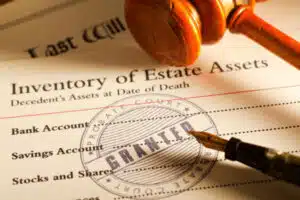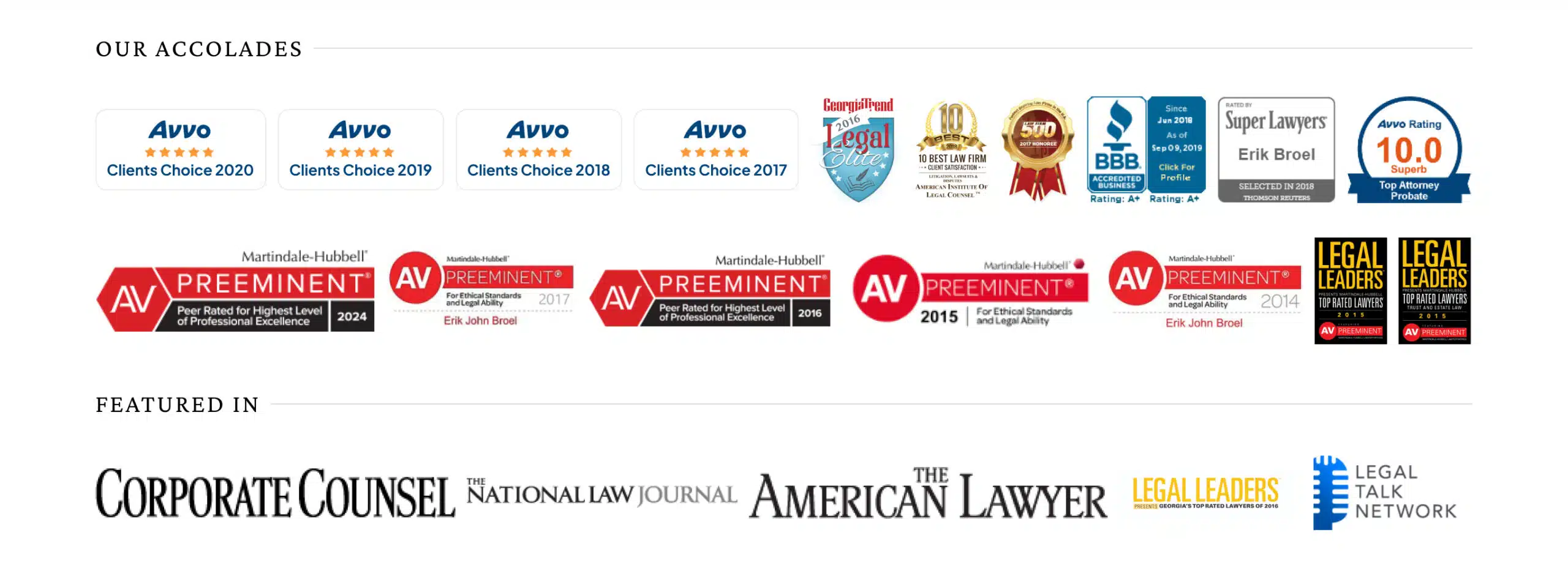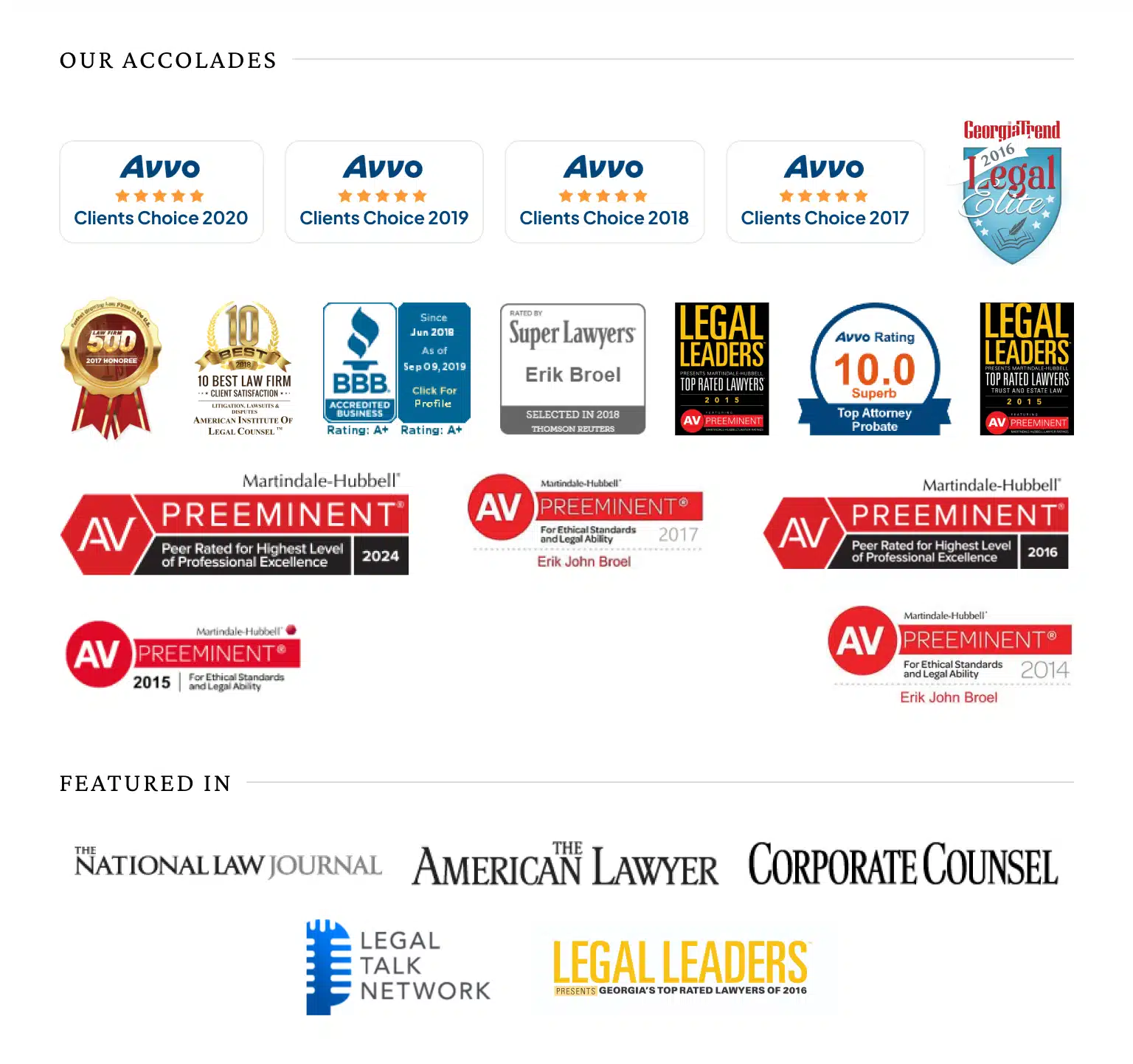When someone dies, one of the most common questions that may come up is how much does an estate have to be worth to go to probate, which is a legal process that validates and settles a deceased person’s assets.
Probate proceedings involve inventorying the deceased’s properties, paying their debts, and distributing the remaining assets to the surviving heirs or beneficiaries nominated in the last will or, in the absence of a testament, according to Georgia’s intestacy laws.
The need for probate in Georgia depends on whether there are probate and non-probate assets, which means whether or not there are possessions that must go through the probate process in Georgia to be transferred to others.
Not all estates require probate; understanding this is crucial when settling a deceased person’s properties.
Probate (more appropriately called estate administration) has to do with the court-supervised legal process that takes place after someone passes away. The estate law covers a broad range of processes, including:
Ancillary probate is a type of probate that is only used in certain circumstances. It occurs when the deceased lived in one state and owned real estate in another state.
For example, if the deceased lived in Tennessee and owned real estate in Georgia, then ancillary probate would be required to handle the Georgia real estate.
As this is a complex process and the probate laws vary, we recommend that you have an experienced probate lawyer help you.
When a trust is created and funded correctly, there are usually no assets to be distributed through the probate process and you may be able to bypass probate.
The trustee simply steps in and distributes the trust’s assets according to the rules laid out in the trust document or takes other actions with the assets as required by the trust.
If all the decedent’s assets were included in the trust, nothing is left to distribute through the probate process. If this occurs, the person who has the decedent’s will is only responsible for filing the original will with the probate court as required by Georgia probate laws.
To know the difference between probate assets and non-probate assets, we follow this simple rule:
All assets must go through probate by default unless an exception classifies them as non-probate assets.
Many believe having a will with designated beneficiaries and a named executor is enough to avoid probate court proceedings.
Unfortunately, a will won’t seamlessly transfer assets to your family members and beneficiaries. According to the state’s laws, the testament must be probated through the probate court for it to be considered valid and for the decedent’s estate to be distributed.
However, an estate can also include non-probate assets, which skip probate and go directly to a named beneficiary.
Typically, the surviving family members of a deceased person would like to know how much does an estate have to be worth to go to probate.
However, knowing the estate value is needed in every stage of the probate process and estate administration, from filing the original petition to paying the filing fees and court fees to distributing the final assets.
Regardless, valuing an estate needs some work and includes the following steps:
These possessions may include bank accounts, investment accounts, real estate or other properties, vehicles, jewelry, or other deceased personal belongings – in short, anything worth money.
Probate assets are possessions either titled solely in the deceased’s name or have a shared interest with another party (but without survivorship on the title).
Some examples of probate assets can be:
The deceased’s assets have a designated named beneficiary or are assets owned jointly with another party with survivorship on the title.
Some examples of non-probate assets can be:
Regardless of whether they are probate or non-probate assets, to determine the estate value, we’ll consider them as:

Typically, you can establish the value of financial assets such as bank accounts, retirement accounts, investments, and even cryptocurrency simply by looking at the most recent account statements.
Real estate appraisers or agents are often used to determine the fair market value of a deceased person’s real estate.
They will offer you the best value for the property, considering the real estate market and its condition.
This gross value is then reduced by the mortgage, any equity loans, property taxes, and liens on the property to have the estate determined net value.
If the late person owned business interests, including stocks or shares in a company, the personal representative needs to establish their value according to the business law.
Stocks included in an investment portfolio often have a publicly traded value, while for small business interests, you will need the help of a professional business valuation expert.
Depending on their specific situation, they have the legal representation to determine the company’s worth as a going business or as the sum of its parts. If the deceased was a partial company owner, the expert must determine the probate valuation of the business interests within their estate.
Estates usually include a certain amount of personal property, such as antiques, collectibles, guns, coins, jewelry, cars, etc. These require professional valuation and can sometimes be worth more than you expect.
Sometimes, an appraisal isn’t enough to provide an accurate value for intangible assets like royalties, copyrights, patents, and trademarks. Therefore, the personal representative must work with an expert to establish their value.
Assets that do not need to go through probate are non-probate assets, and their value will be determined similarly to the value of probate assets.

If the deceased owed people money at the time of his death, the legal representative must first take care of settling debts before any property is distributed to the surviving heirs and beneficiaries through the estate.
Debts generally have a set value that is easily determined, and we can include mortgages, credits, medical bills, and so on here.
The administrator or executor should always keep a detailed estate inventory to address potential legal matters or administrative issues.
In Georgia, there is no specific estate value that requires probate. It depends on whether the deceased owned probate assets that must be settled.
However, a simplified probate process allows certain heirs of the deceased person to claim money from the deceased’s bank account if the person dies intestate (without a will). The purpose of the simplified probate is to help heirs facilitate the estate administration process in a faster and more efficient way.
If the deceased passed away with assets that did not have a designated beneficiary, then probate is more than likely necessary regardless of the size of the estate.
If the deceased had no will and the only asset was money deposited in a bank or other financial institution, and the amount is less than $15,000.00, the estate may not have to go to probate. It is best to speak with a probate attorney to ensure that the estate does not have to go through the Georgia probate process.
*Please note that the bank is not required to provide the funds.
**This statute is permissive, and it is not uncommon for a financial institution to refuse to provide funds until a personal representative is appointed.
In this post, we discussed the situations when probate is required: what it is, when it is required, and how to establish the value of an estate in Georgia.
Do you still have unanswered questions about how much does an estate have to be worth to go to probate? Call us at (770) 796-4582, or use the form to set up a consultation with one of our team members.
Disclaimer These websites have not been reviewed by Georgia Probate Law Group and are not endorsed or even recommended by Georgia Probate Law Group. These websites are additional resources that you can use to further your general education on this topic.
Disclaimer: The information above is provided for general information only and should not be considered legal advice. Our probate attorneys provide legal advice to our clients after talking about the specific circumstances of the client’s situation. Our law firm cannot give you legal advice unless we understand your situation by talking with you. Please contact our law office to receive specific information about your situation.
Compassionate listeners, knowledgeable guidance. Schedule a free consultation with our team and let us help you and your family with your legal concerns.
GET IN TOUCH 770-796-4685Learn Important Probate Essentials, including key things that go wrong in an estate, how to prevent them, and what to do if they happen.



© 2025 Georgia Probate Law Group by Broel Law, LLC. All rights reserved.